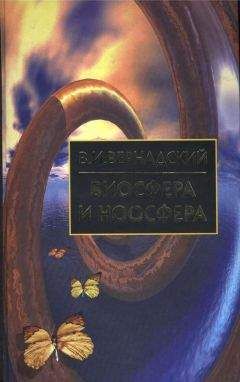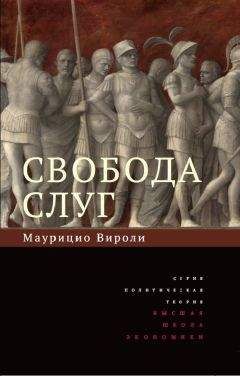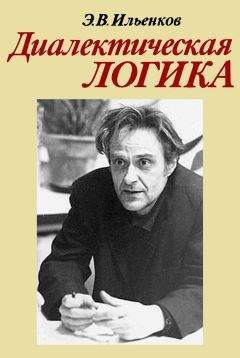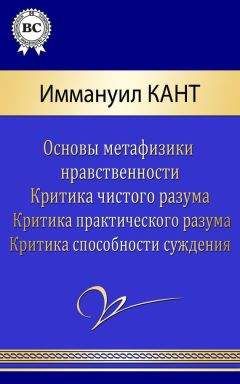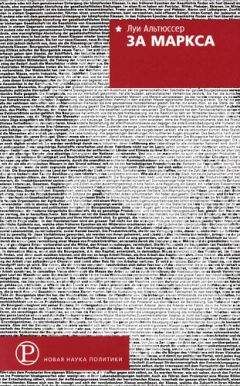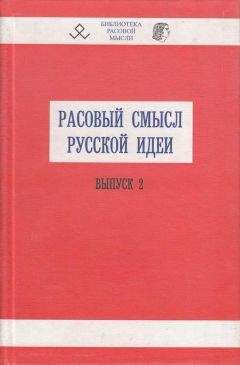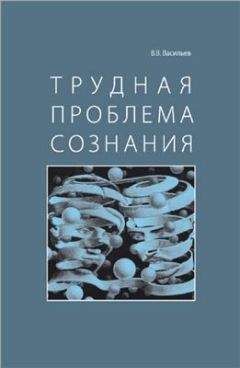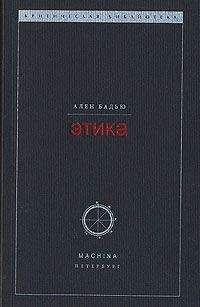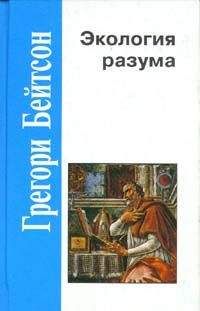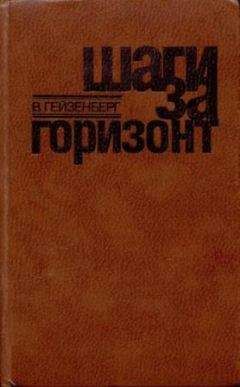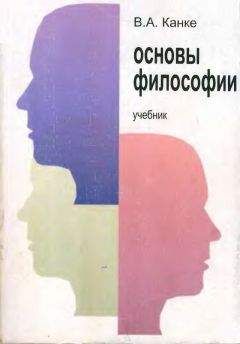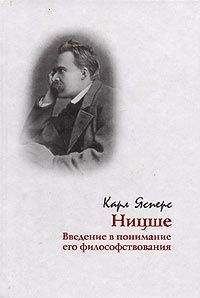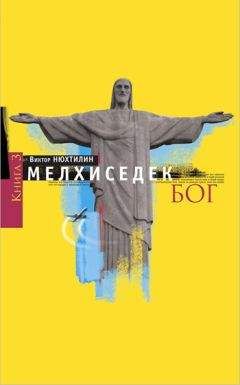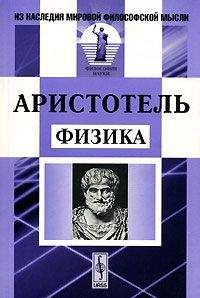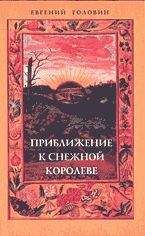Роджер Пенроуз - Тени разума. В поисках науки о сознании
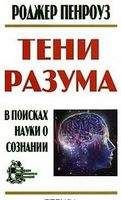
Скачивание начинается... Если скачивание не началось автоматически, пожалуйста нажмите на эту ссылку.
Жалоба
Напишите нам, и мы в срочном порядке примем меры.
Описание книги "Тени разума. В поисках науки о сознании"
Описание и краткое содержание "Тени разума. В поисках науки о сознании" читать бесплатно онлайн.
Книга знаменитого физика о современных подходах к изучению деятельности мозга, мыслительных процессов и пр. Излагаются основы математического аппарата — от классической теории (теорема Гёделя) до последних достижений, связанных с квантовыми вычислениями. Книга состоит из двух частей: в первой части обсуждается тезис о невычислимости сознания, во второй части рассматриваются вопросы физики и биологии, необходимые для понимания функционирования реального мозга.
Для широкого круга читателей, интересующихся наукой.
[336] Schrodinger, E. (1967). "What is Life?" and "Mind and Matter". Cambridge University Press.
[337] Schroeder, M. (1991). Fractals, chaos, power laws. Minutes from an infinite paradise. Freeman, New York.
[338] Scott, A. C. (1973). Information processing in dendritic trees. Math. Bio. Sci., 18, 153-160.
[339] Scott, A. C. (1977). Neurophysics. Wiley Interscience, New York.
[340] Searle, J. R. (1980). Minds, brains and programs. В сб. The behavioral and brain sciences. Vol. 3. Cambridge University Press. (Также в сб. The mind's I (ed. D. R. Hofstadter, D.C.Dennett). Basic Books, Inc.; Penguin Books Ltd., Harmondsworth, Middlesex, 1981.)
[341] Searle, J.R. (1992). The rediscovery of the mind. MIT Press, Cambridge, Massachusetts.
[342] Seymore, J., Norwood, D. (1993). A game for life. New Scientist, 139, No. 1889, 23-26.
[343] Sheng, D., Yang, J., Gong, C, Holz, A. (1988). A new mechanism of high Tc superconductivity. Phys. Lett., A133, 193-196.
[344] Sloman, A. (1992). The emperor's real mind: review of Roger Penrose's The Emperor's New Mind. Artificial Intelligence, 56, 355-396.
[345] Smart, J. J. С (1961). Godel's theorem, Church's theorem and mechanism. Synthese, 13, 105-110.
[346] Smith, R.J.O., Stephenson, J. (1975). Computer simulation of continuous systems. Cambridge University Press.
[347] Smith, S., Watt, R.C., Hameroff, S.R. (1984). Cellular automata in cytoskeletal lattice proteins. Physica D, 10, 168-174.
[348] Smolin, L. (1993). What have we learned from non-pertubative quantum gravity? В сб. General relativity and gravitation 1992. Proceedings of the thirteenth international conference on GRG, Cordoba, Argentina (ed. R.J.Gleiser, C. N.Kozameh, O.M.Moreschi). Institute of Physics Publications, Bristol.
[349] Smolin, L. (1994). Time, structure and evolution in cosmology. В сб. Temponelle scienziae filosofia (ed. E. Agazzi). Word Scientific, Singapore.
[350] Smorynski, C. (1975). Handbook of mathematical logic. North-Holland, Amsterdam.
[351] Smorynski, C, (1983). "Big" news from Archimedes to Friedman. Notices Amer. Math. Soc, 30,251-256.
[352] Smullyan, R. (1961). Theory of Formal Systems. Princeton University Press.
[353] Smullyan, R. (1992). Godel's incompleteness theorem. Oxford Logic Guide No. 19. Oxford University Press.
[354] Squires, E.J. (1986). The mystery of the quantum world. Adam Hilger Ltd., Bristol.
[355] Squires, E.J. (1990). On an alleged proof of the quantum probability law. Phys. Lett., A145, 67-68.
[356] Squires, E.J. (1992). Explicit collapse and superluminal signals. Phys. Lett., A163, 356-358.
[357] Squires, E.J. (1992). History and many-worlds quantum theory. Found. Phys. Lett., 5, 279-290.
[358] Stairs, A. (1983). Quantum logic, realism and value-definiteness. Phil. ScL, 50 (4), 578-602.
[359] Stapp, H.P. (1979). Whiteheadian approach to quantum theory and the generalized Bell's theorem. Found. Phys., 9, 1-25.
[360] Stapp, H.P. (1993). Mind, matter, and quantum mechanics. Springer-Verlag, Berlin.
[361] Steen, L.A. (ed.) (1978). Mathematics today: twelve informal essays. Springer-Verlag, Berlin.
[362] Stoney, G.J. (1881). On the physical units of nature. Phil. Afag. (Series 5), 11, 381.
[363] Stretton, A. O. W., Davis, R. E., Angstadt, J. D., Donmoyer, J.E., Johnson, CD., Meade, J.A. (1987). Nematode neurobiology using Ascaris as a model system. J. Cellular Blochem., 511 A, 144.
[364] Thorne, K. S. (1994). Black holes & time warps: Einstein's outrageous legacy. W. W. Norton and Company, New York.
[365] Torrence, J. (1992). The concept of nature. The Herbert Spencer lectures. Clarendon Press, Oxford.
[366] Tsotsos, J.K.. (1990). Exactly which emperor is Penrose talking about? Behavioural and Brain Sciences, 13 (4), 686.
[367] Turing, A.M. (1937). On computable numbers, with an application to the Entscheidungsproblem. Proc. Land. Math. Soc. (ser. 2), 42,230-265; исправления в 43, 544-546.
[368] Turing, A.M. (1939). Systems of logic based on ordinals. Proc. bond. Math. Soc, 45, 161-228.
[369] Turing, A.M. (1950). Computing machinery and intelligence. Mind, 59, No. 236; также в The mind's I (ed. D. R. Hofstadter, D. С Dennett), Basic Books; Penguin, Harmondsworth, Middlesex, 1981.
[370] Turing, A.M. (1986). Lecture to the London Mathematical Society on 20 February 1947. В сб. A.M.Turing's ACE report of 1946 and other papers (ed. В. Е. Carpenter, R. W. Doran). The Charles Babbage Institute, vol. 10, MIT Press, Cambridge, Massachusetts.
[371] Tusznyski, J., Trpisova, В., Sept, D., Sataric, M. V. (1996). Microtubular self-organization and information processing capabilities. В сб. Toward a science of consciousness: contributions from the 1994 Tucson conference (ed. S. Hameroff, A. Kaszniak, A. Scott). MIT Press, Cambridge, Massachusetts.
[372] von Neumann, J. (1932). Mathematische Grundlagen der Quantenmechanik, Springer-Verlag, Berlin. Пер. на англ.: Mathematical foundations of quantum mechanics. Princeton University Press, 1955.
[373] von Neumann, J., Morgenstern, O. (1944). Theory of games and economic behaviour. Princeton University Press.
[374] Waltz, D.L. (1982). Artificial intelligence. Scientific American, 247 (4), 101-122.
[375] Wang, Hao (1974). From mathematics to philosophy. Routledge, London.
[376] Wang, Hao (1987). Reflections on Kurt Godel. MIT Press, Cambridge, Massachusetts.
[377] Wang, Hao (1993). On physicalism and algorithmism: can machines think? Philosophia mathematica (Sen III), 97-138.
[378] Ward, R.S., Wells, R.O.Jr. (1990). Twistor geometry and field theory. Cambridge University Press.
[379] Weber, J. (1960). Detection and generation of gravitational waves. Phys. Rev., 117, 306.
[380] Weinberg, S. (1977). The first three minutes: a modern view of the origin of the universe. Andre Deutsch, London.
[381] Werbos, P. (1989). Bell's theorem; the forgotten loophole and how to exploit it. В сб. Bell's theorem, quantum theory, and conceptions of the universe (ed. M. Kafatos). Kluwer, Dordrecht.
[382] Wheeler, J. A. (1957). Assessment of Everett's "relative state" formulation of quantum theory. Revs. Mod. Phys., 29, 463-465.
[383] Wheeler, J. A. (1975). On the nature of quantum geometrodynamics. Annals of Phys., 2, 604-614.
[384] Wigner, E. P. (1960). The unreasonable effectiveness of mathematics. Commun. Pure Appl. Math., 13, 1-14.
[385] Wigner, E. P. (1961). Remarks on the mind-body question. В сб. The scientist speculates (ed. I. J. Good). Heinemann, London. (Также в Е. Wigner (1967), Symmetries and reflections. Indiana University Press, Bloomington; и в Quantum theory and measurement (ed. J.A.Wheeler, W. H. Zurek) Princeton University Press, 1983.)
[386] Wilensky, R. (1990). Computability, consciousness and algorithms. Behavioural and Brain Sciences, 13 (4), 690.
[387] Will, С (1988). Was Einstein right? Putting general relativity to the test. Oxford University Press.
[388] Wolpert, L. (1992). The unnatural nature of science. Faber and Faber, London.
[389] Woolley,B. (1992). Virtual worlds. Blackwell, Oxford.
[390] Wykes, A. (1969). Doctor Cardano. Physician extraordinary. Frederick Muller.
[391] Young, A.M. (1990). Mathematics, physics and reality. Robert Briggs Associates, Portland, Oregon.
[392] Zeilinger, A., Gaehler, R., Shull, C.G., Mampe, W. (1988). Single and double slit diffraction of neutrons. Revs. Mod. Phys., 60, 1067.
[393] Zeilinger, A., Home, M.A., Greenberger, D.M. (1992). Higher-order quantum entanglement. В сб. Squeezed states and quantum uncertainty (ed. D. Han, Y. S. Kirn, WW.Zachary), NASA Conf. Publ. 3135. NASA, Washington, DC.
[394] Zeilinger, A., Zukowski, M., Home, M.A., Bernstein, H. J., Greenberger, D. M. (1994). Einstein—Podolsky—Rosen correlations in higher dimensions. В сб. Fundamental aspects of quantum theory (ed. J.Anandan, J.L. Safko). World Scientific, Singapore.
[395] Zimba, J. (1993). Finitary proofs of contextuality and nonlocality using Majorana representation of spin-3/2 states, M. Sc. thesis, Oxford.
[396] Zimba, J., Penrose, R. (1993). On Bell non-locality without probabilities: more curious geometry. Stud. Hist. Phil. Sci., 24 (5), 697-720.
[397] Zohar, D. (1990). The quantum self. Human nature and consciousness defined by the New Physics. William Morrow and Company, Inc., New York.
[398] Zohar, D., Marshall, I. (1994). The quantum society. Mind, physics and a new social vision. Bloomsbury, London.
[399] Zurek, W. H. (1991). Decoherence and the transition from quantum to classical. Physics Today, 44 (No. 10), 36-44.
[400] Zurek, W.H. (1993). Preferred states, predictability, classicality and the environment-induced decoherence. Prog, of Theo. Phys., 89 (2), 281-302.
[401] Zurek, W. H., Habib, S., Paz, J. P. (1993). Coherent states via decoherence. Phys. Rev. Lett., 70 (9), 1187-1190.
Подписывайтесь на наши страницы в социальных сетях.
Будьте в курсе последних книжных новинок, комментируйте, обсуждайте. Мы ждём Вас!
Похожие книги на "Тени разума. В поисках науки о сознании"
Книги похожие на "Тени разума. В поисках науки о сознании" читать онлайн или скачать бесплатно полные версии.
Мы рекомендуем Вам зарегистрироваться либо войти на сайт под своим именем.
Отзывы о "Роджер Пенроуз - Тени разума. В поисках науки о сознании"
Отзывы читателей о книге "Тени разума. В поисках науки о сознании", комментарии и мнения людей о произведении.





